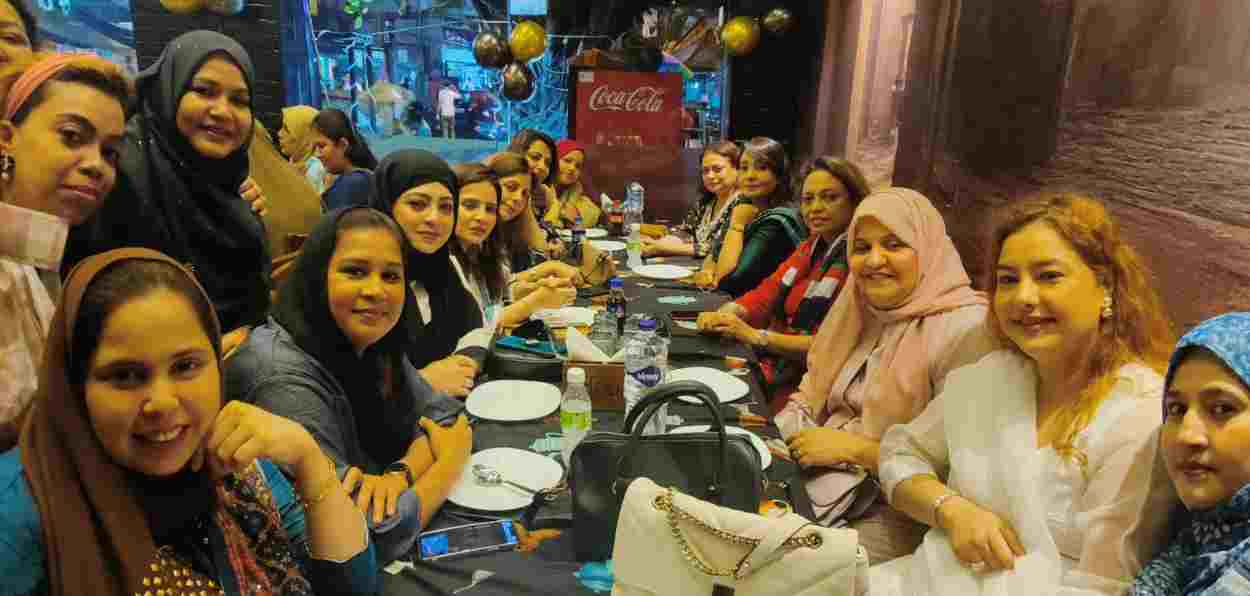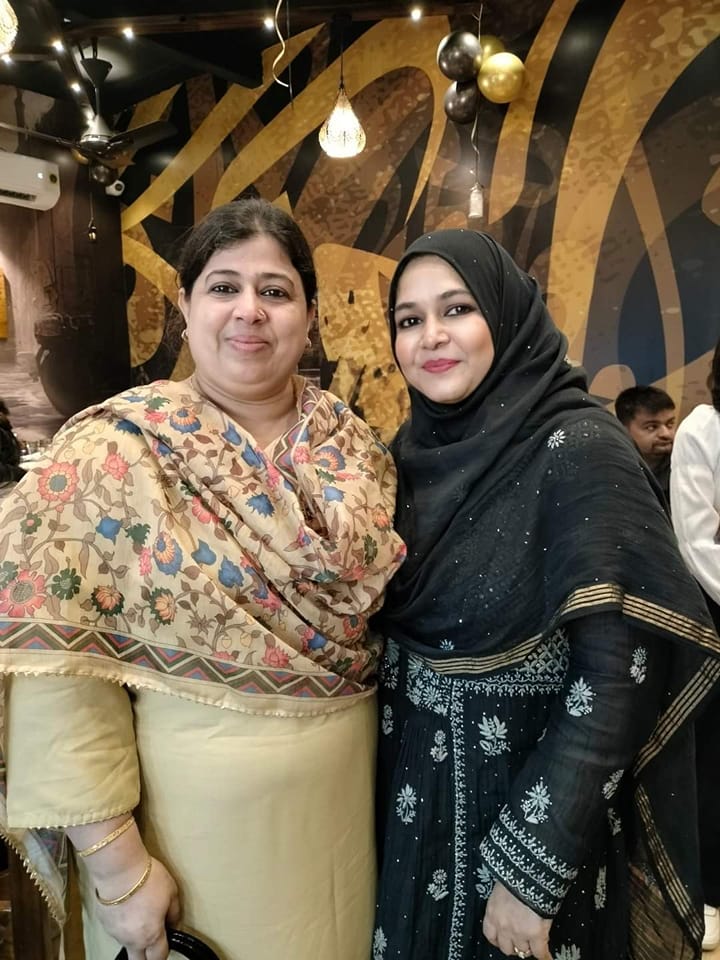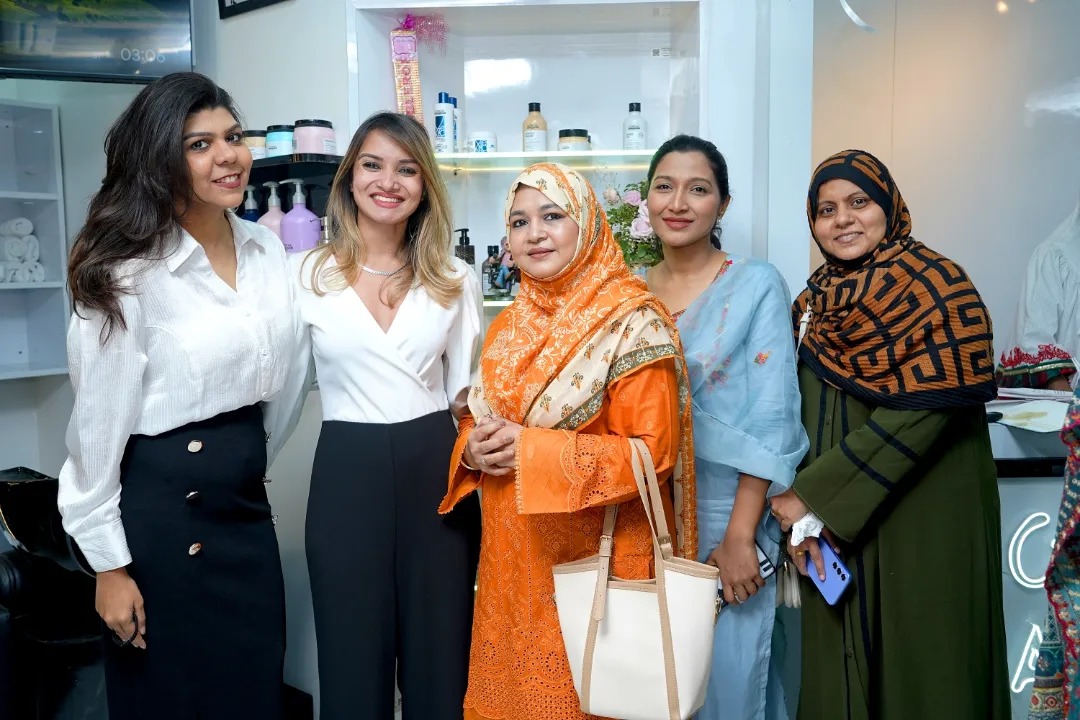
Rita Farhat Mukand
Rukhshi Kadiri Elias, founder of Tajira, the dynamic network in Kolkata where women uplift and support one another in entrepreneurship to launch and sustain businesses, has fond memories of Eid of her childhood.
"I remember as a child getting very excited for Eid. Preparations for Eid began well ahead in Ramadan when we went out to buy clothes and matching earrings and bangles and sandals. We bought just about everything we could buy new for our home and ourselves - from clothes to bedsheets to towels - and of course, there was a lot of spring cleaning in the backdrop!"
Going down memory lane, Rukhshi said, "On the Eid, we would wake up early morning extremely excited, anticipating a day full of fun, food and celebrations with family and friends. As soon as our eyes opened, we would hop out of our beds, rush to have quick showers and see off our brothers and fathers as they went for their Namaz looking very grand in their new kurtas, and topis, exuding a sweet aroma after applying fresh perfumed attar. Before leaving, they would eat a little of the delicious sewaiyan that Mummy cooked the night before Eid. Traditionally, in our home, she made two kinds of sewaiyan, one with milk called Sheer Khurma and the other, Qemami Sewain made with khoya.
 Rukhshi Kadiri Elias with a member of Tajira
Rukhshi Kadiri Elias with a member of Tajira
“Thereafter, we hurriedly dressed up in our exquisite new clothes enhanced by our matching earrings and sparkling colourful churis (Bangles), and then go and stand with Mummy who led us in our prayers as we offered Namaz. We waited patiently at home for people to come in and visit us where Mummy would serve them all the sumptuous food she had cooked.
“We eagerly set out to visit our neighbours to greet them. We were not permitted to move far from our home, so we would only visit our immediate neighbours' and friends' homes. While we looked forward to the delicious goodies they offered us, I will let you into a little secret, the real highlight of our Eid was Eidi" she says with a laugh. "We were into big contests during Eid wanting to brag of a bigger booty of Eidi tussling for a larger amount of Eidi. Hilariously, we would compare how much we got with our neighbours and friends and we enjoyed this little friendly competition."
Smiling at memories she said, "I remember how predictable our neighbors were, and each home had their unique way of welcoming us. There was this Bohra Muslim family who would give us colourful chocolaty gems and serve us delicious Kukum sherbet which we looked forward to. Other neighbours offered us delicious keema and kachori!
“The glitter and glamour of Eid never failed to thrill us, and we spent a good amount of time comparing our pretty new clothes, and dresses, admiring each other with awe, marvelling at how well we had glammed up our hair, enthralled over our beautifully matched our churis complimenting our clothes while peering down at each other’s and our new fetching sandals in fascination. Everything about this day was renewed, fascinating and exciting.
“I remember a tiny mela in our locality where we would run over to the swings, merrily swinging and singing, and then race over to eat mouthwatering puchkas from the Puchkawala standing in the corner, and we never missed buying candies to bring back home. Despite all the delicious edibles, candies always added sweetness to the occasion and we always ended up buying a packet of they and came back home all happy and excited with our feats. By the end of the day, we were exhausted but the exuberance of Eid left a warm glow in our hearts and we fell asleep with a happy smile on our faces and stars in our eyes. Oh, these sweet innocent days of pure joy."
Rukhshi Kadiri Elias with her family
I asked her does she find celebrations these days are different.
"Well, over the passage of time, things changed gradually. Our gears have shifted, we are grown, married and have children, and thus our responsibilities have altered. With all these changes, we have lost that childhood euphoria and our excitement is ebbing.
"The focus has now changed to responsibilities. As children, we never had to think or worry to accomplishing anything much because our parents took care of everything. Suddenly, we realize we have to do everything and as surmounting tasks tower before us keeping us immersed in working and serving, we are so busy that we hardly have time just to sit back and relish Eid's joys.
“As my children were growing up, I had to look after them, get their clothes ready as well as my husband's clothes, and then work endlessly in the kitchen cooking for Eid. Some of the main preparations we make for the feast are sewaiyan, biryani is a must, kebabs, dahi vadas, keema, and korma along with other dishes. After cooking all this, the next day is all about serving our guests from early morning until late night. So Eid for us is all about serving and working from dawn to dusk now.
“The wonderful positive thing is we have just got into the grove and started accepting Eid to be a great way to serve and connect to people in a more personalized way. Honestly, the best part that I look forward to during Eid now is visiting our parents’ home for dinner at night!"
 Rukhshi Kadiri Elias inaugurating a beauty salon of a Tajira member
Rukhshi Kadiri Elias inaugurating a beauty salon of a Tajira member
Lost in a reverie of thoughts she said, “I think how things and priorities have changed is very remarkable. When we were children, it was all about ourselves and about receiving and now that we have grown up, the roles have reversed and now Eid is all about giving. Now, we give out Eidis while in childhood, we used to get these Eidis. Times are different now. In some ways, it is a lot easier and in another way, it is more difficult. The easy part today is shopping now is mostly done online and it makes transactions and travel smoother but at the same time, we struggle with choices because there are too many choices with a lot of comparisons.
Eid is a time to catch up with a little bit of respite from the 30 days of fasting in Ramadan where it was harder because we did not take a sip of water, and we have experienced rising heat in the last three to four days in Kolkata.
I must say that it is amusing that because we were in the mode of fasting during Ramadan, we forget on Eid that we are not fasting. As children, we did not carry out those strict thirty days of fasting but now it is mandatory and our children do, also fast for thirty days as they are grown up now.
However, over these last couple of decades, people seem to be engrossed in their own lives and little worlds, set into their structured lives such that these days, unlike in the past, people hardly visit each other nor want to take the trouble to meet friends and families and neighbours keep to themselves. I can honestly observe that we have fewer visitors than we used to have in our childhood.
Eid is a celebration that brings all people today as even non-Muslim friends visit our home welcoming all people which is why I do not think Eid is related only to Muslims. We also send them (non-Muslims) sweets, and they come home to wish us well and spend some good quality time with us whereas when I was a child, it was more of festive neighbourhood greetings. While the essence of Eid is perenially the same, the manner of celebrations has changed with changing technology and timeframes and we look at Eid as a day to connect with people we would normally not commune with throughout the year without any reason.
ALSO READ: Why Bangladeshi elite send their children to this Siliguri school?
On an optimistic note, I am glad to say that Eid gives us a reason not only to feast but to catch up with our friends and families and wish each other and bless each other and connect with people that normally we would not even meet or greet throughout the year
Rita Farhat Mukand is an independent writer.
